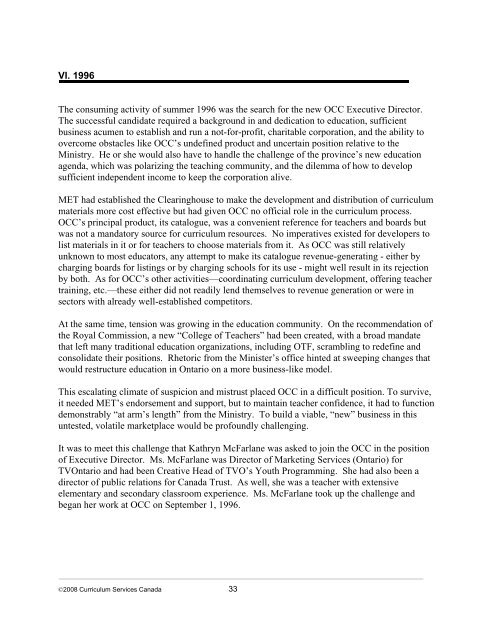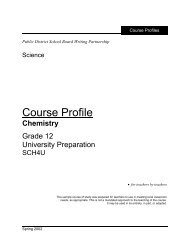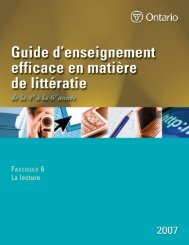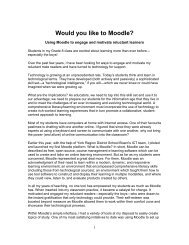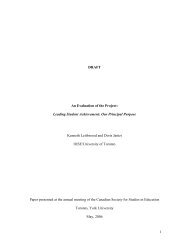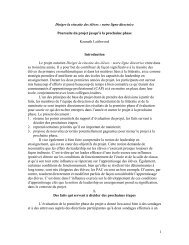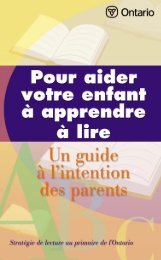a history of curriculum services canada
a history of curriculum services canada
a history of curriculum services canada
Create successful ePaper yourself
Turn your PDF publications into a flip-book with our unique Google optimized e-Paper software.
VI. 1996<br />
The consuming activity <strong>of</strong> summer 1996 was the search for the new OCC Executive Director.<br />
The successful candidate required a background in and dedication to education, sufficient<br />
business acumen to establish and run a not-for-pr<strong>of</strong>it, charitable corporation, and the ability to<br />
overcome obstacles like OCC’s undefined product and uncertain position relative to the<br />
Ministry. He or she would also have to handle the challenge <strong>of</strong> the province’s new education<br />
agenda, which was polarizing the teaching community, and the dilemma <strong>of</strong> how to develop<br />
sufficient independent income to keep the corporation alive.<br />
MET had established the Clearinghouse to make the development and distribution <strong>of</strong> <strong>curriculum</strong><br />
materials more cost effective but had given OCC no <strong>of</strong>ficial role in the <strong>curriculum</strong> process.<br />
OCC’s principal product, its catalogue, was a convenient reference for teachers and boards but<br />
was not a mandatory source for <strong>curriculum</strong> resources. No imperatives existed for developers to<br />
list materials in it or for teachers to choose materials from it. As OCC was still relatively<br />
unknown to most educators, any attempt to make its catalogue revenue-generating - either by<br />
charging boards for listings or by charging schools for its use - might well result in its rejection<br />
by both. As for OCC’s other activities—coordinating <strong>curriculum</strong> development, <strong>of</strong>fering teacher<br />
training, etc.—these either did not readily lend themselves to revenue generation or were in<br />
sectors with already well-established competitors.<br />
At the same time, tension was growing in the education community. On the recommendation <strong>of</strong><br />
the Royal Commission, a new “College <strong>of</strong> Teachers” had been created, with a broad mandate<br />
that left many traditional education organizations, including OTF, scrambling to redefine and<br />
consolidate their positions. Rhetoric from the Minister’s <strong>of</strong>fice hinted at sweeping changes that<br />
would restructure education in Ontario on a more business-like model.<br />
This escalating climate <strong>of</strong> suspicion and mistrust placed OCC in a difficult position. To survive,<br />
it needed MET’s endorsement and support, but to maintain teacher confidence, it had to function<br />
demonstrably “at arm’s length” from the Ministry. To build a viable, “new” business in this<br />
untested, volatile marketplace would be pr<strong>of</strong>oundly challenging.<br />
It was to meet this challenge that Kathryn McFarlane was asked to join the OCC in the position<br />
<strong>of</strong> Executive Director. Ms. McFarlane was Director <strong>of</strong> Marketing Services (Ontario) for<br />
TVOntario and had been Creative Head <strong>of</strong> TVO’s Youth Programming. She had also been a<br />
director <strong>of</strong> public relations for Canada Trust. As well, she was a teacher with extensive<br />
elementary and secondary classroom experience. Ms. McFarlane took up the challenge and<br />
began her work at OCC on September 1, 1996.<br />
©2008 Curriculum Services Canada 33


